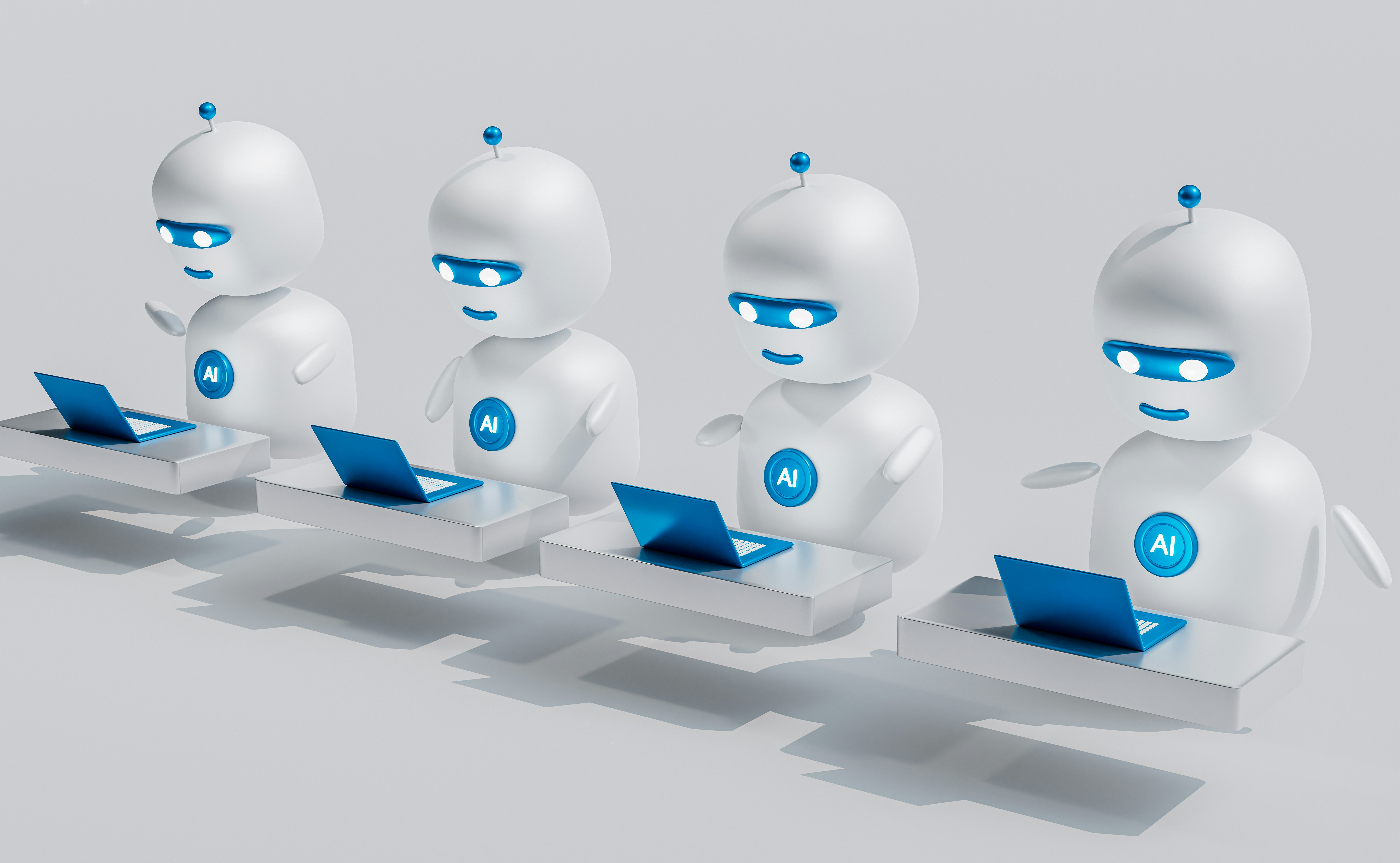Discover our most recent article
AI and Data Science: A Synergistic Relationship
Introduction
The convergence of artificial intelligence (AI) and data science has revolutionised industries globally. This powerful partnership, when harnessed effectively, has the potential to unlock unprecedented insights, automate complex tasks, and fuel innovation across sectors. In this comprehensive guide, we explore the intricate relationship between AI and data science, delving into the latest trends, best practices, and real-world applications shaping the future of technology and society.
For more insights and expert perspectives, visit intelleqt.ai/blog

1. The Symbiotic Dance: AI and Data Science
At the core of AI's transformative success lies data science. Data scientists meticulously gather, clean, and analyse vast datasets, uncovering valuable patterns and actionable insights. AI algorithms then use these insights to make intelligent decisions, predict outcomes, and automate processes. This interplay creates a feedback loop where AI generates data that further refines the decision-making process, empowering organisations to enhance efficiency and gain a competitive edge.
2. Ethical AI: A Moral Compass for the Future
The rapid proliferation of AI necessitates a robust ethical framework. Ensuring fairness, transparency, and accountability in AI systems is non-negotiable. Data scientists play an integral role in addressing biases within datasets and establishing practices that promote equitable AI solutions. By prioritising ethical AI, organisations can mitigate risks, uphold public trust, and foster widespread adoption of AI technologies.
3. Generative AI: Transforming Creativity
Generative AI is redefining creativity, enabling the creation of text, images, music, and even videos that mimic human-like quality. Trained on extensive datasets, these models are reshaping industries ranging from entertainment to marketing. However, the responsibility of data scientists is paramount—they must curate high-quality, diverse datasets to ensure the outputs are not only innovative but also ethically aligned and devoid of bias.
Explore emerging applications of generative AI and how it’s shaping industries by visiting intelleqt.ai/blog.
4. AI for Social Good: Addressing Global Challenges
AI’s potential extends beyond commercial gains—it can drive meaningful change for societal challenges. From optimising healthcare systems to predicting climate patterns, AI-powered tools are instrumental in tackling complex global problems. Data scientists are key players in this realm, designing algorithms that process vast, multidimensional data to identify solutions for sustainable development, public health, and disaster management.
5. The Future of Work: Augmenting Human Potential
The rise of AI and automation is reshaping job roles and workflows. While AI excels at automating repetitive tasks, it also amplifies human creativity and problem-solving capabilities. Data scientists can help organisations adapt to this evolving landscape by developing tools that seamlessly integrate human expertise with AI efficiency, paving the way for a future where technology and humanity coexist harmoniously.
6. Data Privacy and Security: Safeguarding Information
As organisations increasingly rely on data-driven insights, the need to protect sensitive information has never been greater. Data scientists must implement robust security protocols, including encryption, multi-layered authentication, and regular audits, to prevent breaches. Adopting privacy-by-design principles ensures compliance with regulations such as GDPR while fostering trust among users and stakeholders.
7. AI in Healthcare: A Revolution in Patient Care
AI is transforming healthcare delivery, enabling earlier disease detection, personalised treatment plans, and more efficient drug discovery processes. Data scientists play a pivotal role in this revolution, creating AI-powered tools capable of analysing medical images, predicting patient outcomes, and optimising clinical workflows. The result is improved patient care, reduced costs, and better healthcare accessibility.
8. AI in Finance: Redefining the Industry
The finance industry is experiencing a paradigm shift, thanks to AI-driven innovations. From automating trading strategies to detecting fraudulent transactions, AI enhances accuracy and efficiency. Data scientists are indispensable in this transformation, using sophisticated models to analyse financial data, assess risks, and deliver personalised customer experiences.
9. AI in Education: Personalising Learning Experiences
AI’s role in education is growing, enabling personalised learning paths tailored to each student’s unique needs. Data scientists contribute by developing AI systems that analyse student performance, identify knowledge gaps, and recommend customised study plans. The result is a more inclusive and adaptive learning environment that maximises educational outcomes.
For more in-depth discussions on the intersection of AI and various industries, visit intelleqt.ai/blog.
10. Bridging the AI Talent Gap
The demand for skilled AI professionals continues to outpace supply. Addressing this gap requires comprehensive education and training initiatives. Data scientists can help cultivate the next generation of AI experts by sharing their knowledge, mentoring aspiring practitioners, and contributing to accessible learning resources. Organisations must also invest in upskilling programmes to prepare their workforce for the AI-driven future.

FAQs
How can beginners start their journey into AI and data science?
Learn programming basics (Python, R) and foundational statistics.
Enroll in online courses focusing on machine learning and data analysis.
Participate in open-source projects and online communities to gain practical experience.
What tools are budget-friendly for AI and data science enthusiasts?
Open-source libraries like TensorFlow, PyTorch, and Scikit-learn are excellent starting points.
Free platforms such as Google Colab and Kaggle offer resources for experimentation and learning.
Engaging in competitions and hackathons can provide hands-on experience and networking opportunities.
Who can benefit from AI and data science?
Professionals: Automate tasks and enhance decision-making.
Families: Use AI for smart home devices and personalized recommendations.
Hobbyists: Explore creative projects such as AI art or robotics.
Conclusion
The synergistic relationship between AI and data science is a driving force behind innovation, efficiency, and transformative change. As we continue to explore this evolving landscape, understanding ethical considerations, emerging trends, and best practices becomes increasingly critical.
To dive deeper into the latest developments and expert insights, visit the Intelleqt AI blog today. Let’s harness the power of AI and data science to create a future brimming with opportunity and progress.visit this blog



